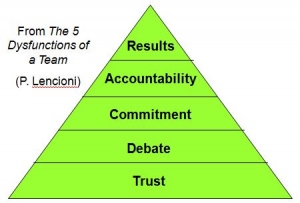None of us can completely check our personality at the door, so we tend to bring our habits, good and bad, into the workplace with us. We can be supplicative, combative, competitive, or cooperative.
There are an estimated 80 million young Americans who belong to the so-called millennial generation, roughly ages 18 to 35. By next year, they are expected to comprise 36% of the U.S. workforce, and by 2020, millennials will be nearly half of all workers.
While millennials are the most educated and culturally diverse of any generation before them, they’re also notorious job-hoppers who dislike bureaucracy and distrust traditional hierarchies—leaving many business leaders scratching their heads. What motivates this rising cohort? How do you keep them engaged, earn their trust and get the most out them? Leadership and millennial experts weighed in with a few surprising—and surprisingly easy—ways to inspire millennial workers.

If you feel overwhelmed you may need to rethink how you use your time. Here are seven ways you may be wasting time without even realizing it.
Many new leaders are thrust into supervisory positions quickly, with no real management training to speak of. So as you would expect, they make lots of mistakes. Here are a few of the most common. Hopefully, just being aware of them will help you and your colleagues do things differently!
The Key Characteristics of Generation Z and how they’ll impact talent management
There’s a famous story from the early days of the space race.
President John F. Kennedy was visiting NASA headquarters for the first time, in 1961. While touring the facility, he introduced himself to a janitor who was mopping the floor and asked him what he did at NASA. The janitor replied, “I’m helping put a man on the moon!”
No organization’s culture is perfectly healthy.
But there are some organizations where the culture is toxic — way beyond the “normal dysfunctional” level. These cultures tolerate or encourage behaviors that suck the life out of people. And no matter how great a business’s strategy, marketing, and financial operations are, a toxic culture will poison business success.
How do you know if your company culture is toxic?
Here are a few signs:
Not many teams are great at both results and relationships.
Patrick Lencioni, in The Five Dysfunctions of a Team, lays out a simple but powerful framework for high-performance teaming that blends results and relationships. How does your team measure up?

